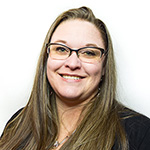The production of recombinant therapeutic proteins requires the use of a host organism. Commonly used host organisms for therapeutic protein production include chinese hampster ovary (CHO), E. coli, P. Pastoris, and S. cerevisiae. The popularity of CHO for mammalian cell-based production is mainly due to its capacity for efficient protein folding and post-translational modifications such as glycosylation compatible with humans.
More specifically, CHO cells are a prevalent choice when using a mammalian platform due to their relative ease of culture and high productivity. CHO cells are also well characterized and have been successfully scaled. Despite the widespread use of CHO cells in therapeutic protein production, the presence of many CHO cell line options and the need to optimize cell culture conditions for every cell line in a product-specific manner can lead to extended timelines and substantial cost in the development of a cell line for a new biologic.
To meet this need, Cytovance has established a scalable platform process using the Freedom™ CHO-S™ expression system, which allows for rapid progression through the development pipeline into manufacturing and ensures a significantly reduced cost of development and shortened timeline from sequence to clinical material.
The Cytovance platform upstream process using the Freedom™ CHO-S™ system has been shown to be effective for both monoclonal antibody and non-antibody products, enabling Cytovance to facilitate rapid development timelines for a wide variety of molecules. To further accommodate the accelerated development timelines enabled by the Cytovance platform upstream process, Cytovance has developed a platform downstream purification process for monoclonal antibodies (Mabs).
The Cytovance platform Mab downstream process is highly efficient, using a minimal amount of unit operations to produce a high-quality product with a yield that meets or exceeds industry standards for antibody purification. The Cytovance platform downstream process was designed using raw materials that allow for purification of monoclonal antibodies at a fraction of the cost of processes that use a traditional Mab purification scheme; however, raw material redundancy was established during development of the platform process, allowing for substitutions of key raw materials during the process demonstration phase to accommodate changes to the supply chain.
In summary, utilizing the years of industry experience acquired by the personnel of the R&D department, Cytovance has established a scalable platform upstream process using the Freedom™ CHO-S™ cell line, along with a platform downstream purification process for monoclonal antibodies. Together, the Cytovance upstream and downstream platform processes meet a key need in the biologic industry to produce high quality product in conjunction with accelerated timelines and reduced costs on the path from cell line to clinical material. Register for this webinar to learn more.
Speakers

Stephanie Wickham, PhD, Sr. Director of Research and Development, Cytovance
Dr. Stephanie Wickham has over 16 years’ experience in research and industry cell culture and protein purification. Graduate and post-doctoral fellowships focused on transfection, fermentation and purification of proteins from mammalian and microbial hosts while studying structure/function protein interactions and developing small molecule enzyme inhibitors. Her focus at Cytovance has been process transfer into manufacturing, designing scale-up processes and documentation, and leading the MST team as they help every client transition from bench-to-full-scale clinical supply batches. Areas of expertise in transfer include mammalian upstream and downstream along with microbial upstream and downstream producing various proteins ranging from monoclonal antibodies, enzyme, fusions, and cytokines. Dr. Wickham received a B.S. in Chemistry and Mathematics and a Ph.D. in Microbiology.

Kelley Dowd, PhD, Associate Director of Downstream Process Development, Cytovance Biologics
Dr. Kelley Dowd has been with Cytovance Biologics for over 9 years, spending time in the Manufacturing, Manufacturing Sciences and Downstream Process Development groups. As the Associate Director of Downstream Process Development, Dr. Dowd oversees a group of scientists and associates that develop, optimize, demonstrate and characterize midstream, downstream and viral clearance operations for a wide variety of mammalian- and microbial-produced molecules. Dr. Dowd holds a Bachelor’s degree in Biochemistry from the University of Pennsylvania and received her Masters and Doctoral degrees in Microbiology and Immunology from the University of Oklahoma Health Sciences Center.
Who Should Attend?
- Process Development Scientists
- R&D Managers, Directors and Vice Presidents
- Manufacturing Operators
What You Will Learn
In this webinar, participants will learn about:
- How a CHO platform can save time (and cost) when bringing a new protein into manufacturing
- Cytovance Biologics’ development of the platform for rapid generation of clinical material
Xtalks Partner
Cytovance Biologics
Cytovance® Biologics is a leading biopharmaceutical Contract Development and Manufacturing Organization (CDMO) that excels in the rapid and cost-effective development and manufacture of large molecule APIs from both mammalian cell culture and microbial fermentation, such as monoclonal antibodies, fragment antibodies, bispecifics, enzymes, fusion proteins, vaccines and other biological products including plasmid DNA and cell-based therapeutics. In addition to our clinical and commercial cGMP API manufacturing services, Cytovance offers well integrated development services supporting the entire product lifecycle, including cell line development, cell banking, microbial strain development, process and analytical development, and process characterization. A centralized, responsive program management team coordinates all critical CMC activities for each client program around raw materials management, QC testing, ICH stability studies, and regulatory support. Our 140,000 sq. ft. state-of-the-art facilities in Oklahoma City are designed to meet U.S., EU, and other global regulatory standards.
You Must Login To Register for this Free Webinar
Already have an account? LOGIN HERE. If you don’t have an account you need to create a free account.
Create Account

